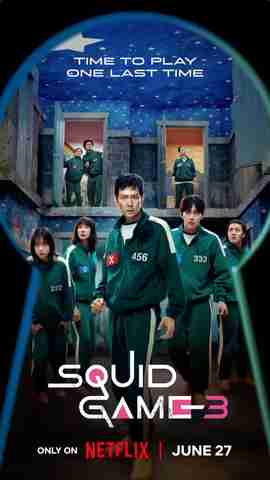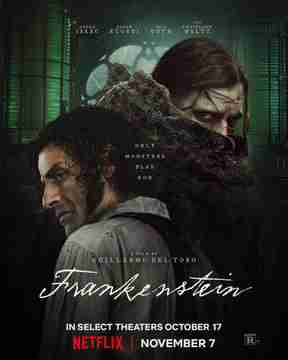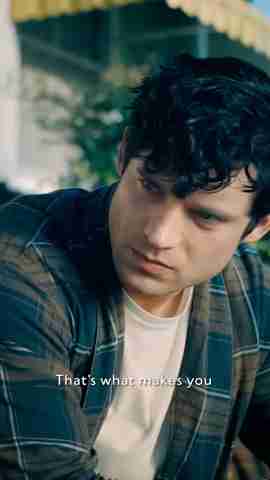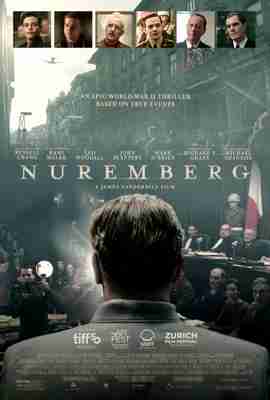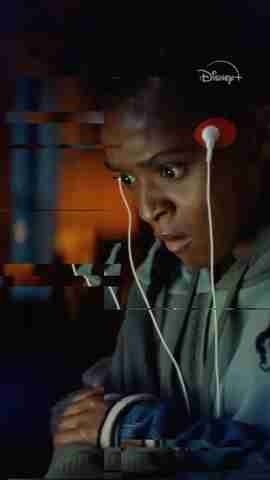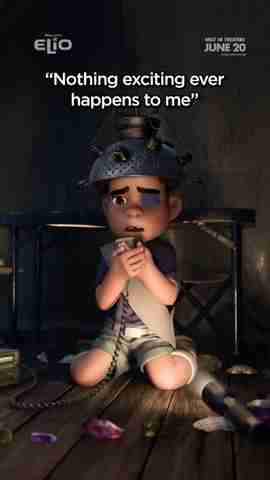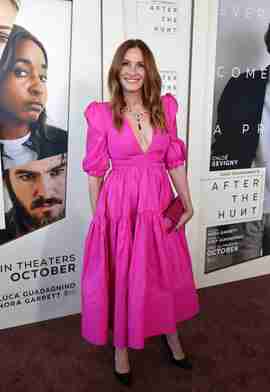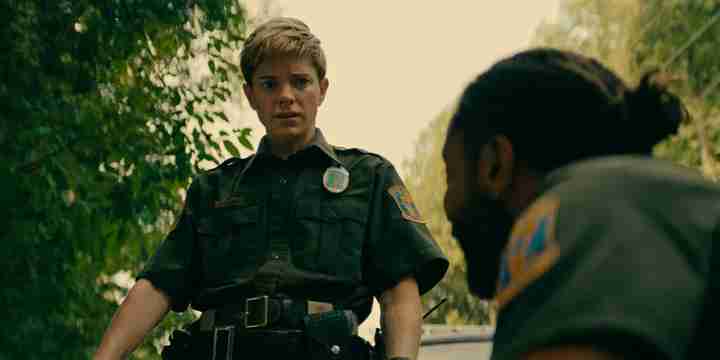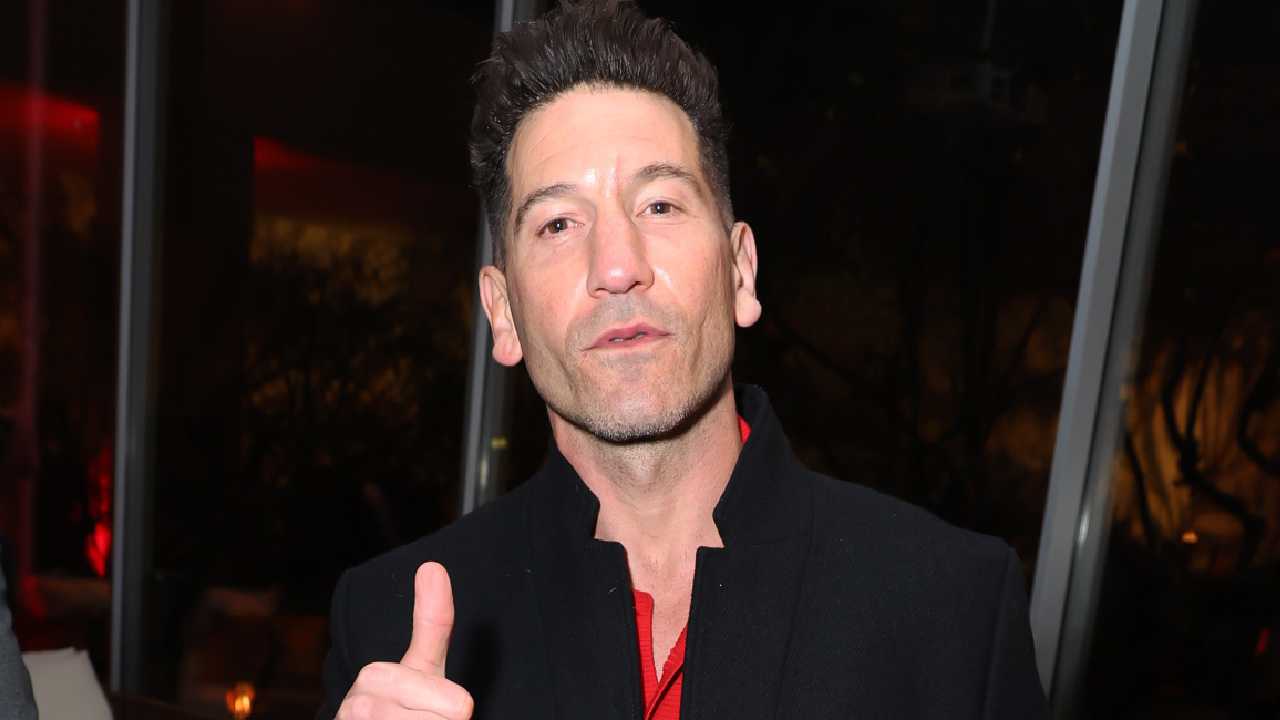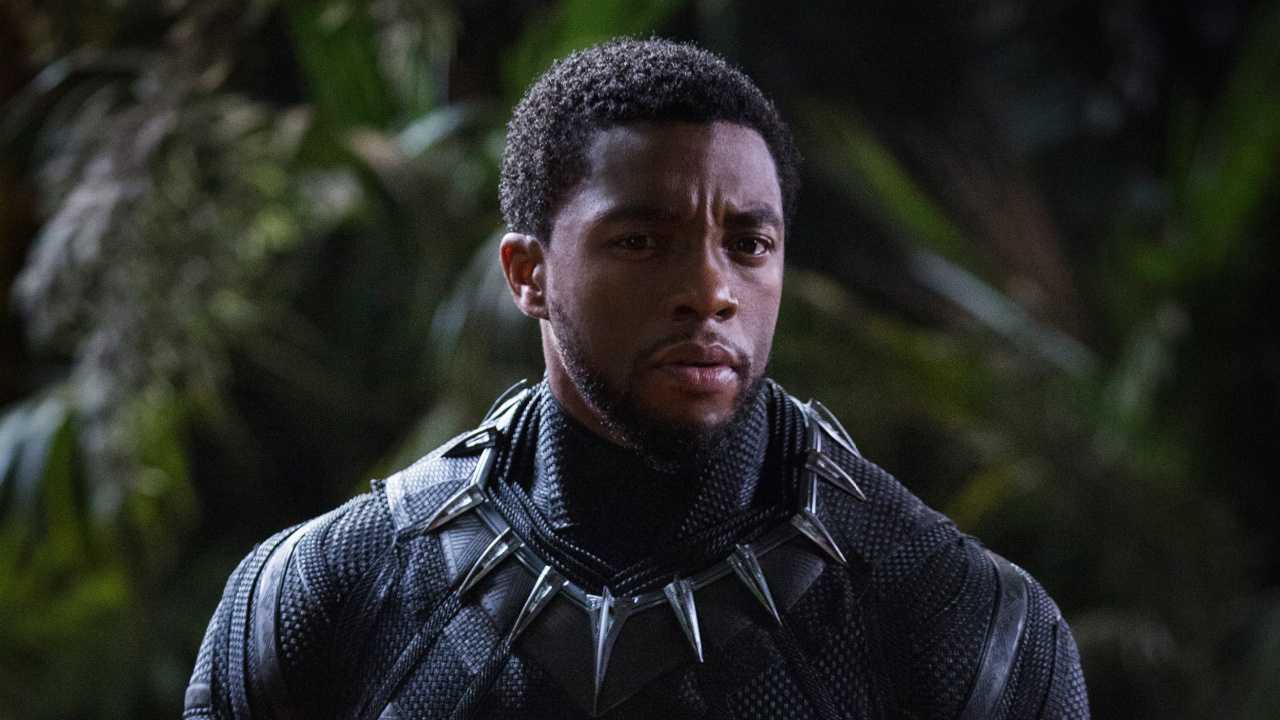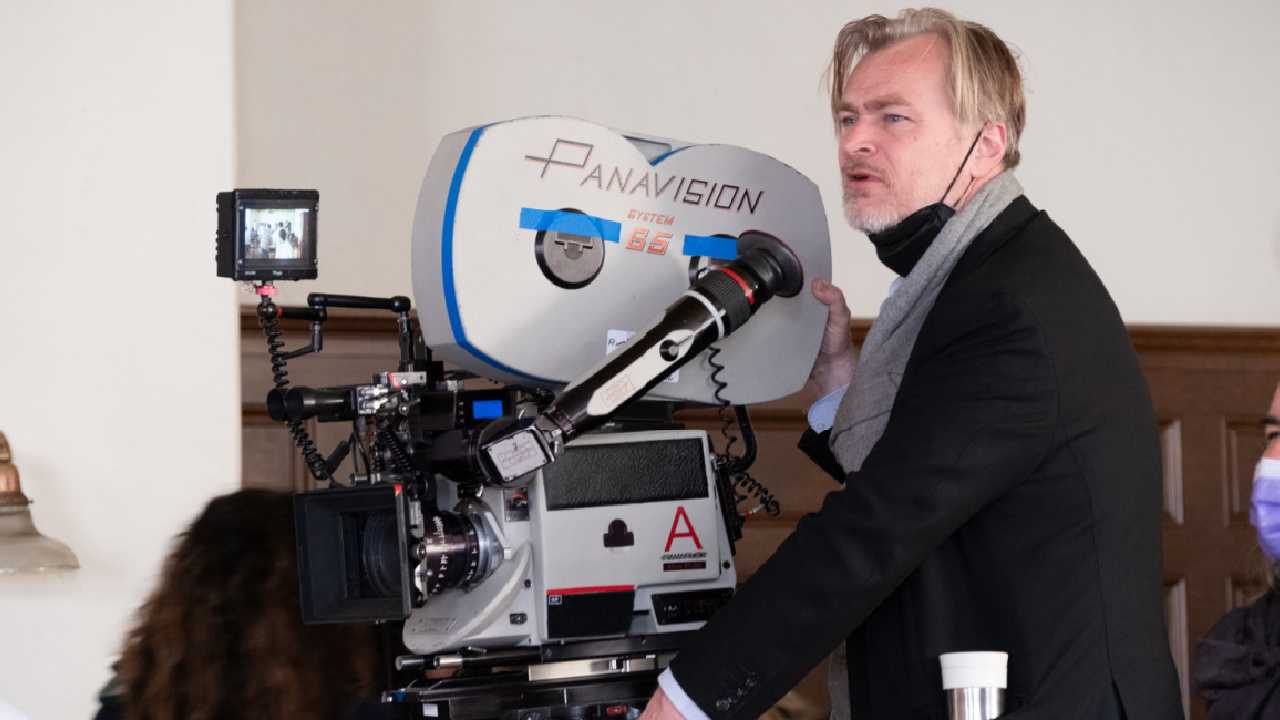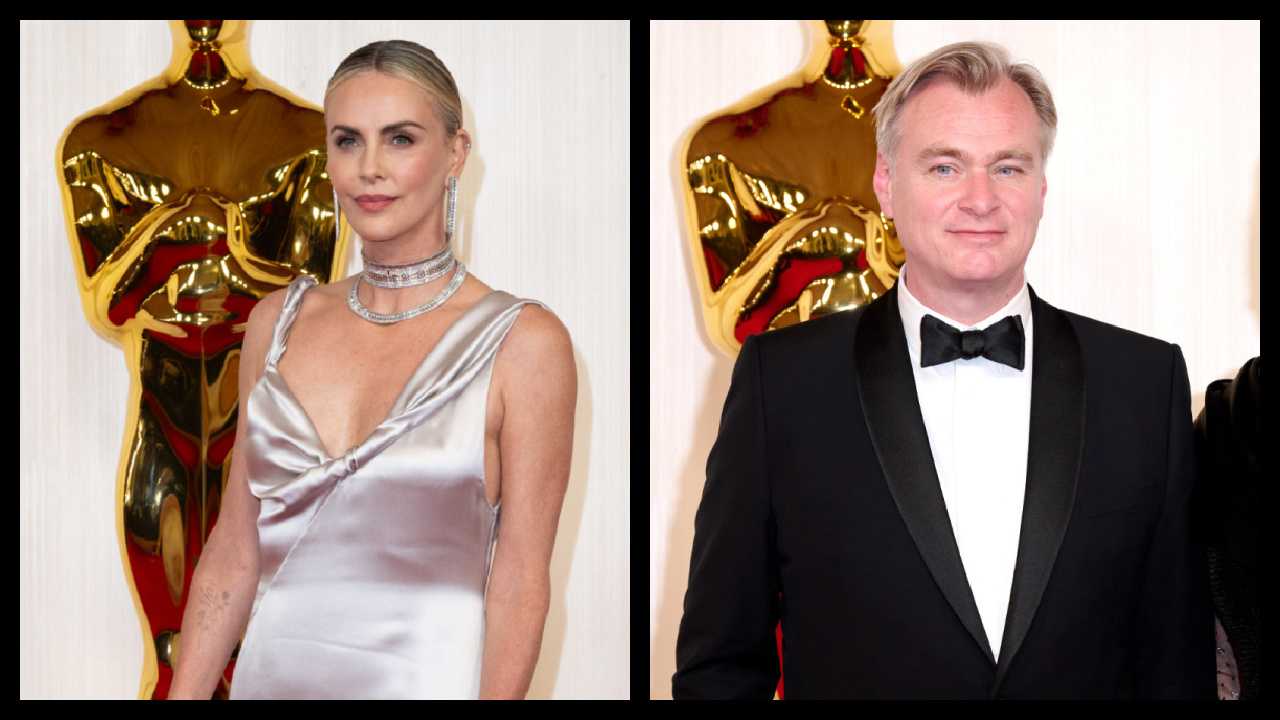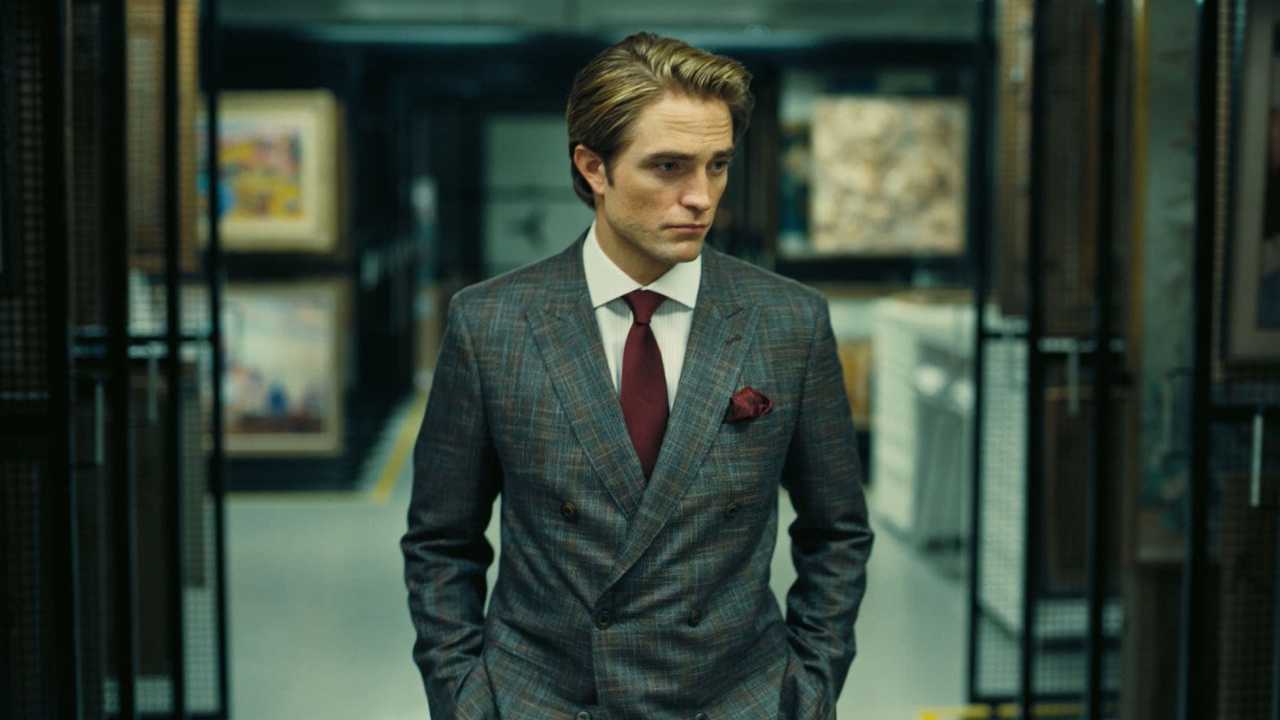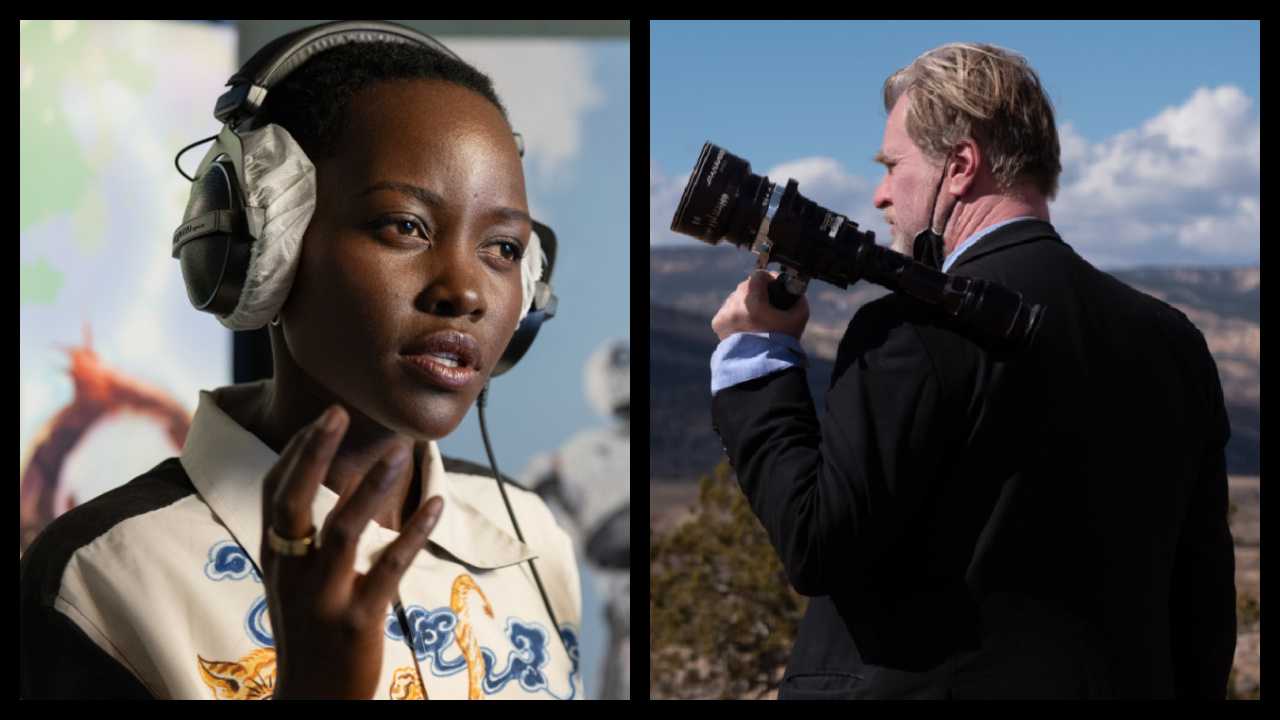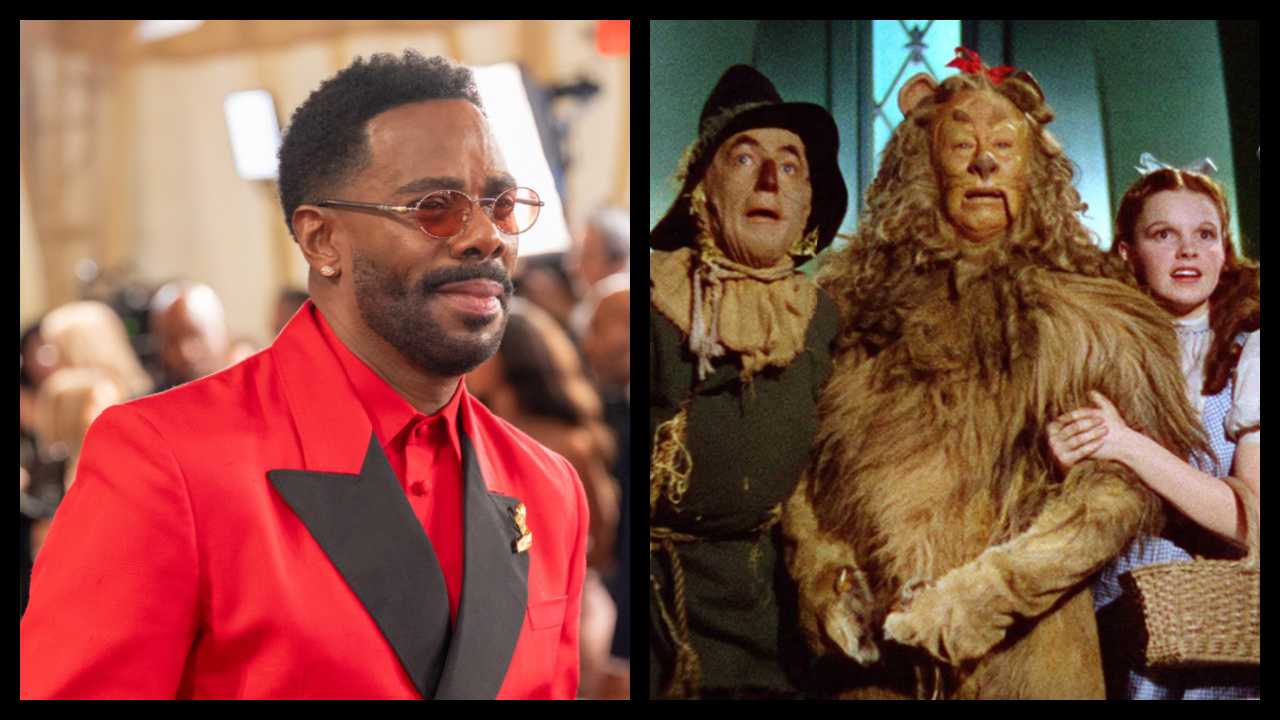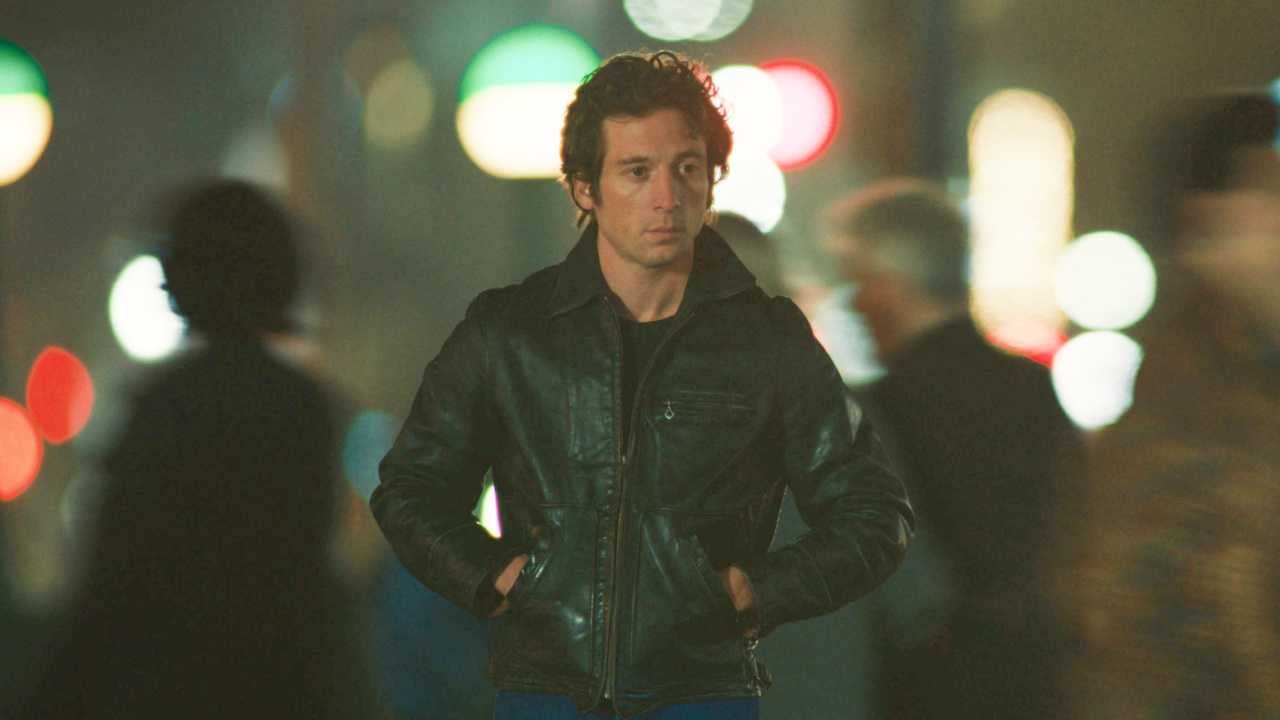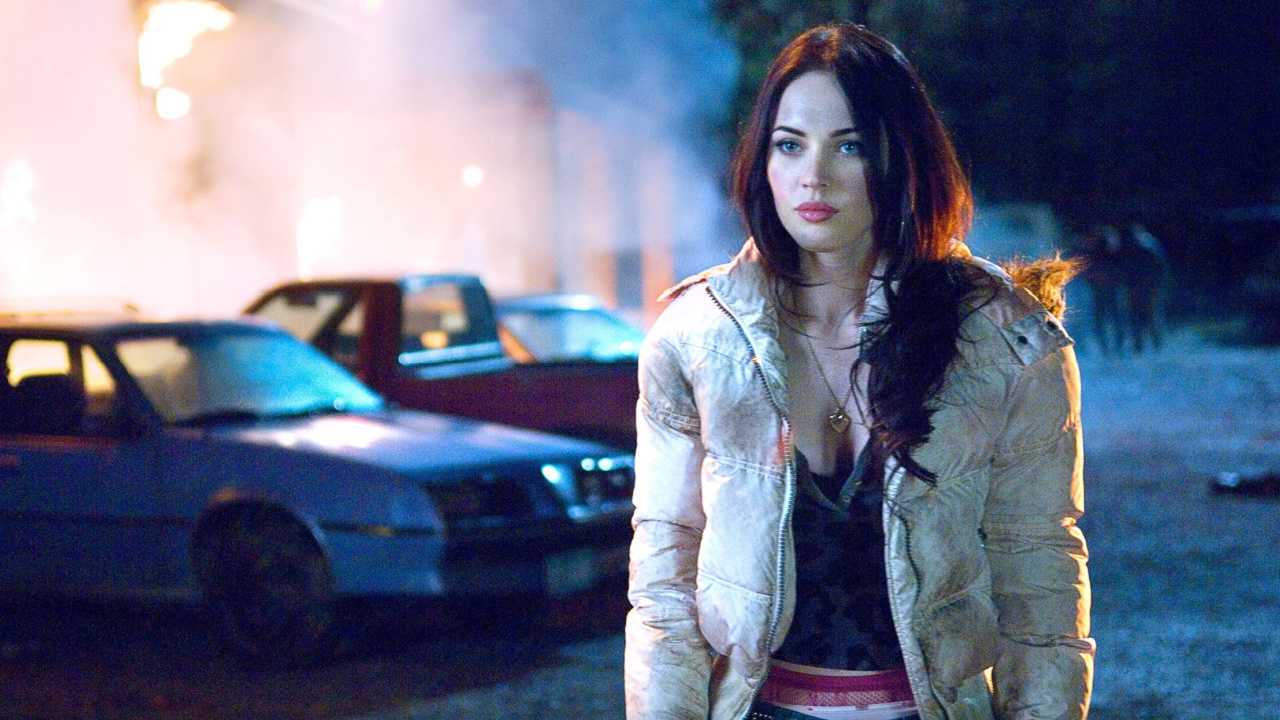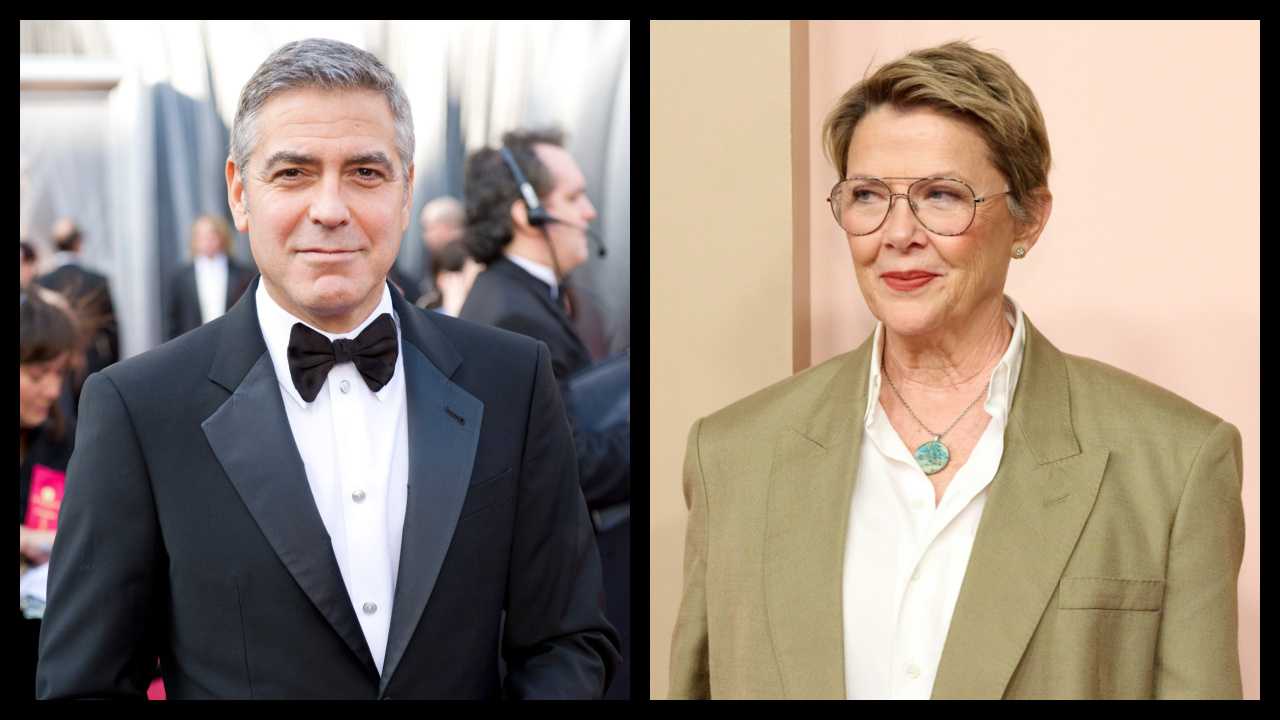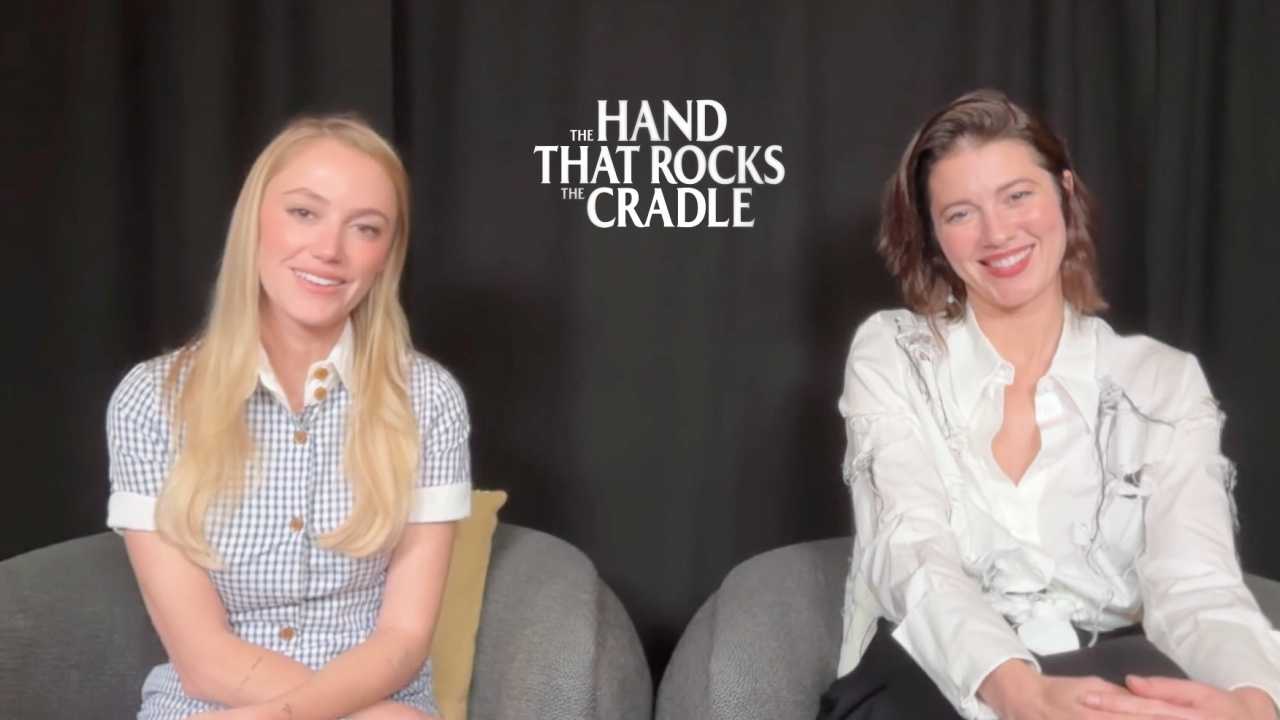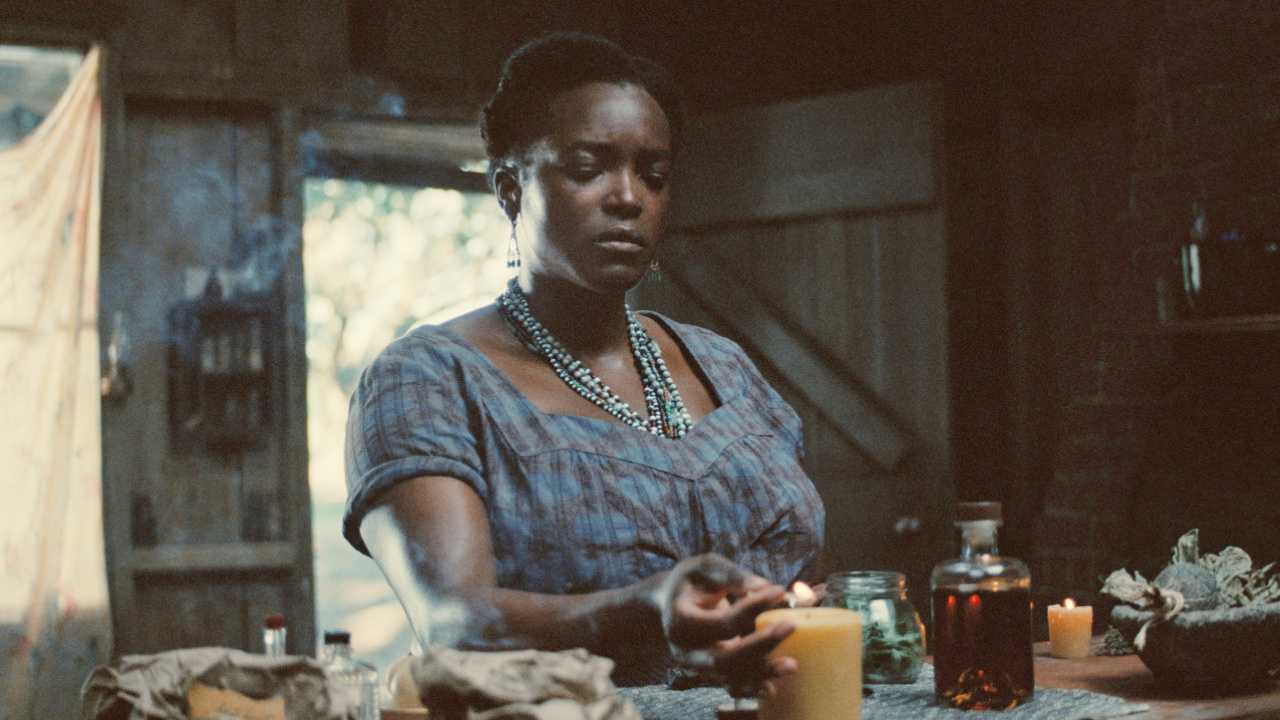Lupita Nyong’o, Letitia Wright, Tenoch Huerta and More Talk ‘Black Panther: Wakanda Forever’
Director Ryan Coogler and Marvel boss Kevin Feige also discuss the new movie, out on Friday November 11th.
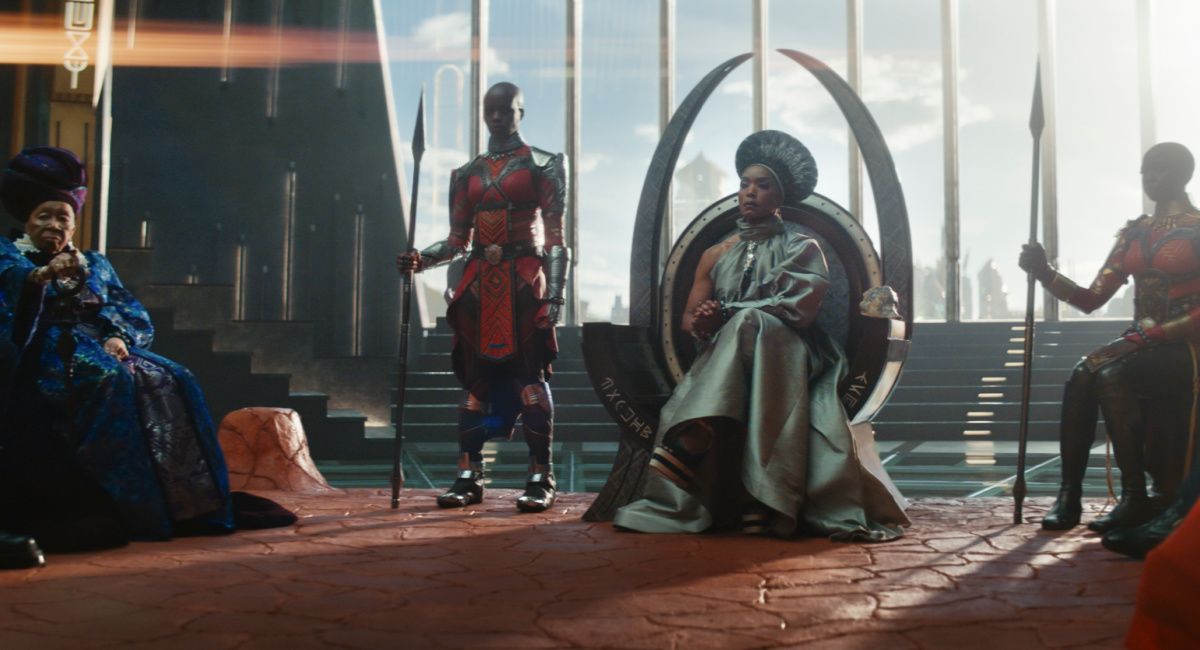
(L-R): Dorothy Steel as Merchant Tribe Elder, Florence Kasumba as Ayo, Angela Bassett as Ramonda, Danai Gurira as Okoye in Marvel Studios' 'Black Panther: Wakanda Forever.' Photo courtesy of Marvel Studios. © 2022 Marvel.
Easily one of the most anticipated movies of the year, superhero sequel ‘Black Panther: Wakanda Forever’ carries more than just the expectations for a follow-up to a huge box office hit and pop cultural moment.
In continuing the story from 2018’s ‘Black Panther’, the movie, its cast and crew must also wrangle with the emotional fallout after the death of leading man Chadwick Boseman, who died in 2020 from colorectal cancer.
For the new movie, Queen Ramonda (Angela Bassett), Shuri (Letitia Wright), M’Baku (Winston Duke), Okoye (Danai Gurira) and the Dora Milaje (including Florence Kasumba) fight to protect their nation from intervening world powers in the wake of King T’Challa’s death.
And there is a threat from beneath too – beneath the surface of the ocean, that is – as Tenoch Huerta’s Namor, ruler of the undersea kingdom of Talokan, who has his own reasons to attack Wakanda.
As the Wakandans strive to embrace their next chapter, the heroes must band together with the help of War Dog Nakia (Lupita Nyong’o) and Everett Ross (Martin Freeman) and forge a new path.
Moviefone had the chance to attend a press conference where Nyong’o, Wright, Huerta, director Ryan Coogler and Marvel Studios President Kevin Feige talked about the new film.
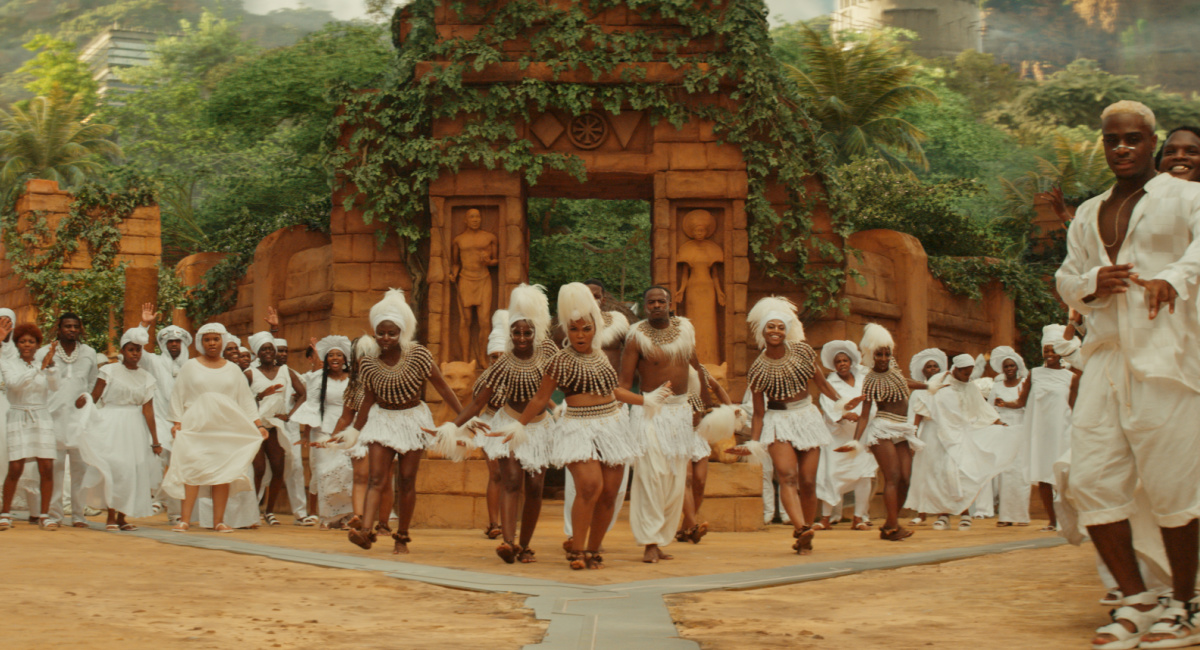
A scene from Marvel Studios' 'Black Panther: Wakanda Forever.' Photo courtesy of Marvel Studios. © 2022 Marvel.
Kevin, work on the script was in progress when Chadwick Boseman died, which meant a big change. How did that process start, and how did it shift as you guys were going about the task?
Kevin Feige: In my memory of it, the shock turned into, "Well, you know, what do we do? What should we do? Should we do anything?" And I think relatively soon, it was determined that this amazing ensemble of characters and this world that had been created onscreen needed to continue. Ryan pours everything and all of himself into everything he does and had been working for almost a year on a version of the movie with T’Challa in it. And was finding and pouring his life experience from making the first movie into that. And then when we lost Chad, all of that, obviously, was then poured into this movie, as well. And keeping the idea of a celebration of Wakanda and the character at the forefront, in addition to the grief that, of course, is gonna come with that.
Ryan, this was a collaborative project. So, tell us about some of the fun collaborations you had on set.
Ryan Coogler: It was great. I think that’s one of the great things, when you get to do a series of films, is that you get to have these mini reunions. It was such an amazing time that we had making the first one. Now, four years had passed. It was just great to see everybody again and to catch up and to see how everybody had grown. We were also coming off of a pandemic. We actually started the film right smack in the middle of it. I think everybody experienced a sense of loneliness, you know, during the years that followed, that crisis. It was just great to see some of these folks and give ‘em a big giant hug again.
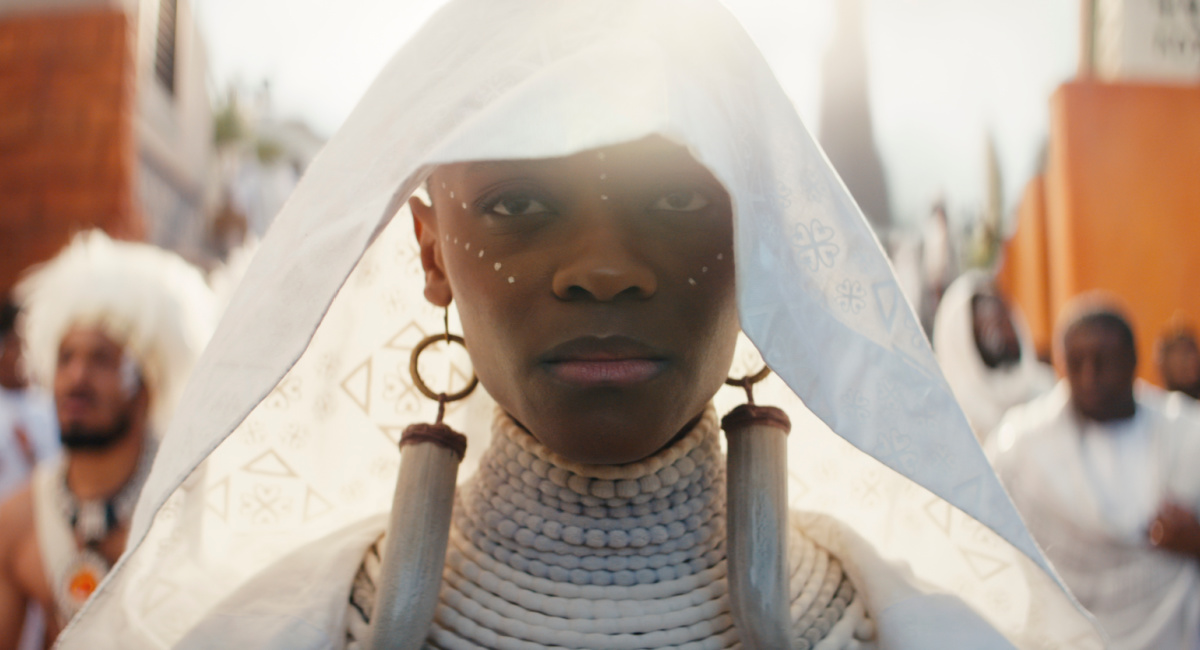
Letitia Wright as Shuri in Marvel Studios' 'Black Panther: Wakanda Forever.' Photo courtesy of Marvel Studios. © 2022 Marvel.
Letitia, talk about playing a different, angrier, grieving side of Shuri in this film?
Letitia Wright: We meet her in the first film and she is that ray of sunshine. She’s so clothed and protected in royalty and love. And proud of her big brother taking the step, following on his father’s legacy. She just wants to create. I love Shuri in the first one because there was no limit to her. She was the person her brother went to for his protection, his armor. He encouraged that. Her family encouraged her to be a genius and to be faithfully and wonderfully made.
So, we follow on from that. What does that look like when your heart is broken? I think it was just Ryan (Coogler)’s guidance on how do we create a full arc of this human being? Of this young woman going to through something alongside her fellow family members, in general, and Wakandans. I think the way it was written and the delicacy, the gentleness of how we approached it. We always spoke, we always communicated, at every step of the way. We were able to bring something that felt real, that felt truthful. I was able to really give my heart to it and give Shuri a full arc. Hopefully people can really resonate with that and find some healing, you know, alongside us, with it.
Lupita, you play Nakia, who seems out of all the characters to best have a handle on her grief, until she admits she doesn’t. And that’s not an easy thing to portray as an actor, right?
Lupita Nyong'o: I remember, in the beginning, reading the script, and I was so envious of Letitia because she gets to be chaotic! That’s how I felt, I felt raw and, you know, wanted to express it. Nakia, though, she’s just a little further along in terms of her processing. It’s not like she has it all figured out, but in the first film, Ryan described her as T’Challa’s oasis. That really, really resonated with me. So, when I was reading this script and thinking about where she is, I realized that what she was once to T’Challa, she now has the opportunity to offer Shuri. It made a lot of sense in terms of the structure and architecture of the story.
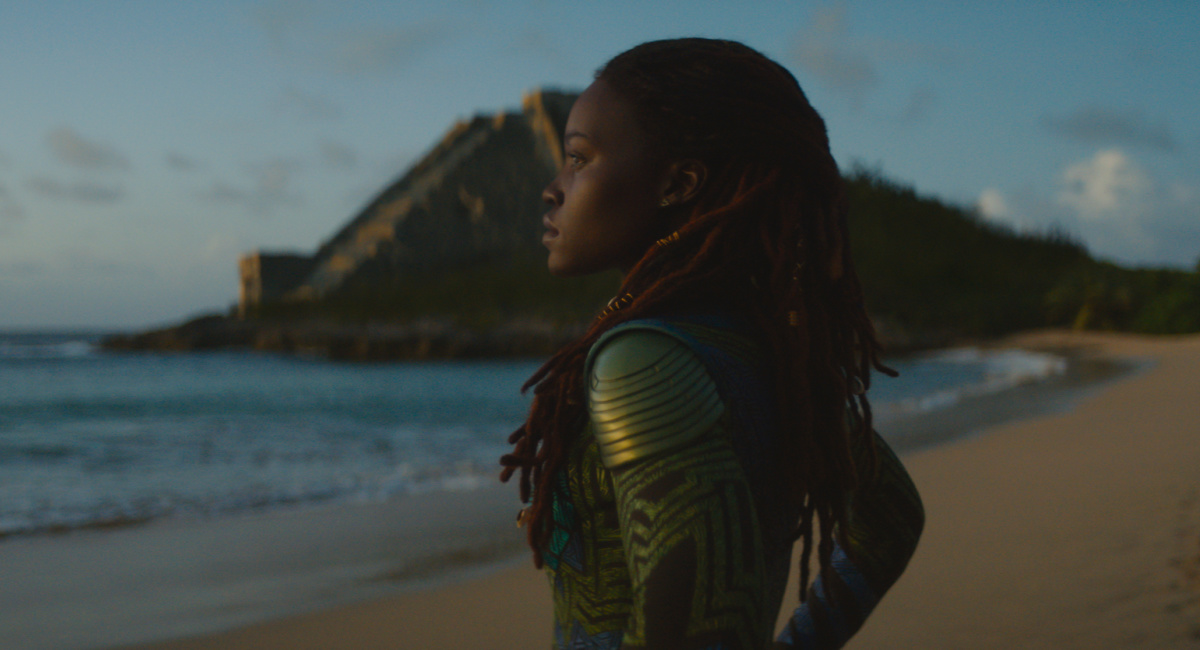
Lupita Nyong'O as Nakia in Marvel Studios' 'Black Panther: Wakanda Forever.' Photo courtesy of Marvel Studios. © 2022 Marvel.
How does that come out in the story?
LN: When we’re talking about exploration of grief, it’s really grounding to have someone who is, I want to say, befriending of the change for the people in the story, but also for an audience. The fact that she was T’Challa’s love, in a way I guess it allows an audience to know that it’s okay, you know? It’s okay. As much as I was frustrated with Ryan for doing that with Nakia, actually playing her was very therapeutic for me. You know, because I had to look beyond my frustrations with losing Chadwick and learn from her. Learn from that wisdom that she seems to possess.
Tenoch, how was it coming in and playing essentially a villain here as Namor?
Tenoch Heurta: It is tricky, when you have a character like this, because you are the antagonist. You’re gonna destroy something that is vital, not just in the story, but to the people. The people outside. A lot of people feel identification with Wakanda, and I include myself in that, and the narrative and representation and everything. So, now I must play the bad guy who tries to destroy that legacy! But at the same time, Ryan, in the script, he found a way to make it human, to justify why that people do that kind of thing.
They share the same wound, you know, historically. I mean, like, representation of their cultures. But at the same time, as individuals, they share that wound. How they solve the problem is about their personality and their own history. So, that’s beautiful. That balance in a movie. It doesn’t happen too much and it’s enjoyable.
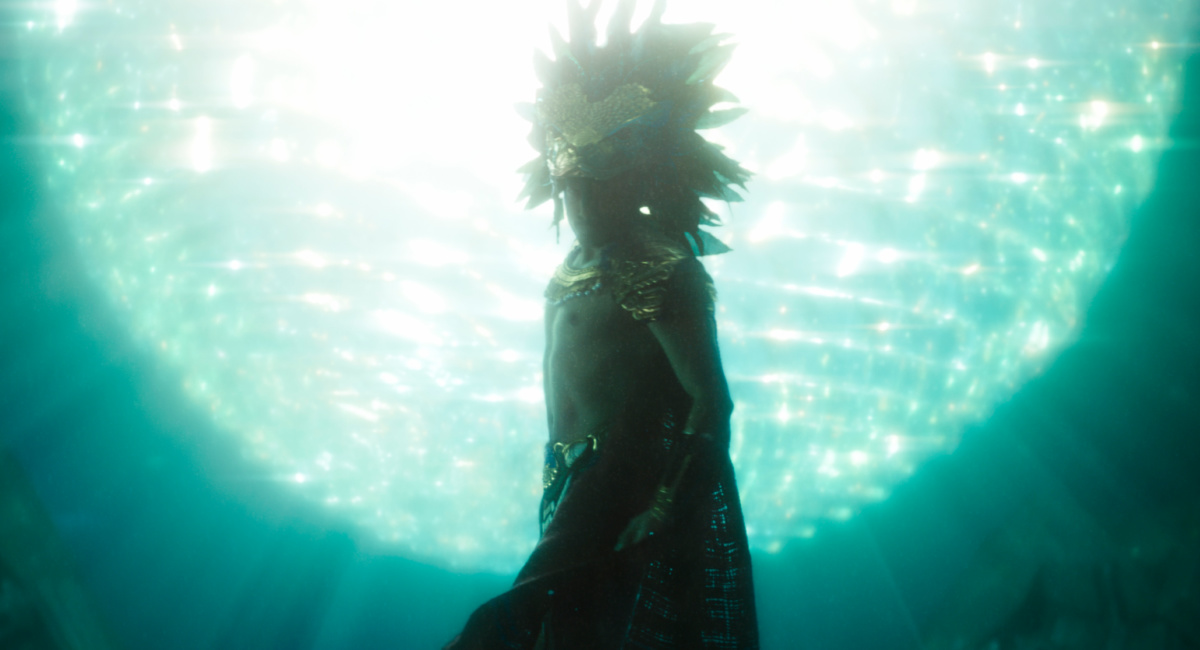
Tenoch Huerta as Namor in Marvel Studios' 'Black Panther: Wakanda Forever.' Photo courtesy of Marvel Studios. © 2022 Marvel.
In the underwater scenes, how much swimming experience did you have before this and how much did you have to get?
TH: I didn’t know how to swim before this movie! But now I can hold my breath for five minutes.
Ryan, what was the thinking behind having the women of Wakanda take center stage?
RC: Yeah. Joe Robert Cole my cowriter, and I, this was what made sense to us. What we wanted to look at was, you know, when you lose somebody, there’s, like, a blast radius. You know, that’s like a bomb that goes off. Who was the closest to it, you know? That’s who we explored.
The main characters, their identities were kinda wrapped up in this man, you know, like, is the truth of it. You know, and Shuri, every day she was alive, she had her brother. So, when she lost him, what we discovered while we were working on the script, and then eventually bringing it to life with the actors, was that she really lost her sense of self. She identified herself as this guy’s little sister. As his protector and as the person who looks out for him. So, when she loses that, it makes her very unmoored. It wasn’t really about gender, directly. It was about who was the most, you know, who would be most affected, you know?
‘Black Panther: Wakanda Forever’ debuts in theaters on November 11th.
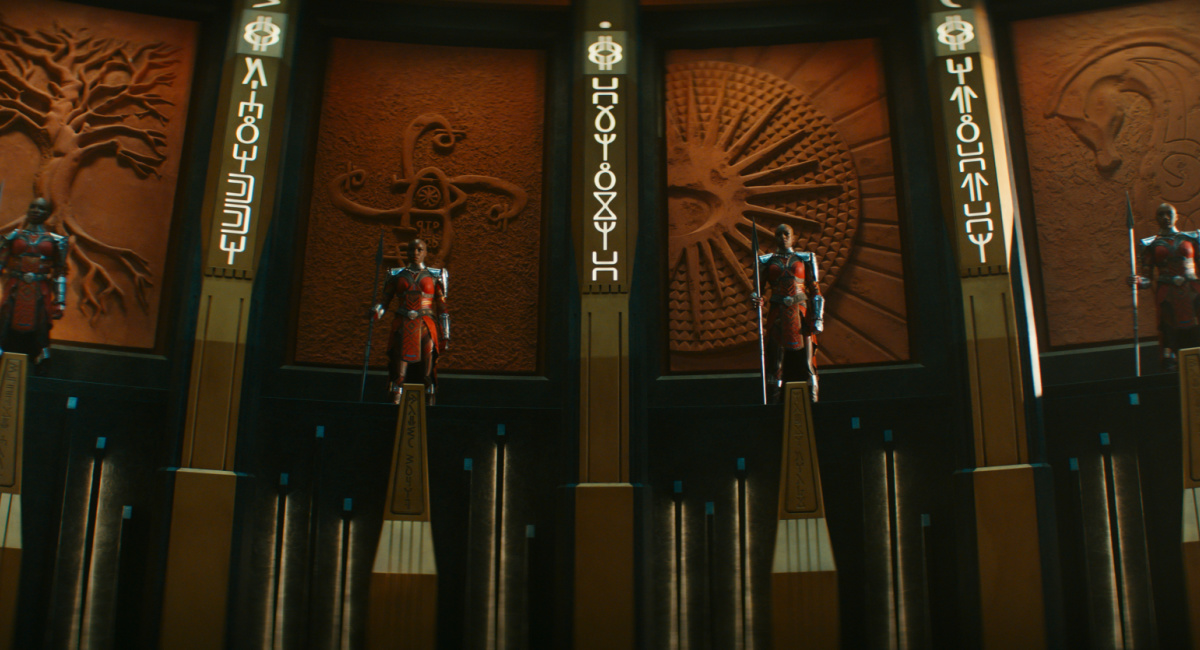
The Dora Milaje in Marvel Studios' 'Black Panther: Wakanda Forever.' Photo courtesy of Marvel Studios. © 2022 Marvel.
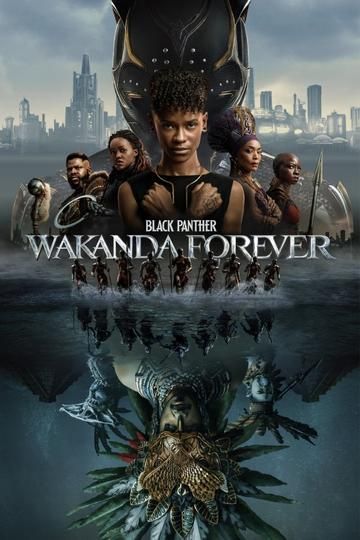
Black Panther: Wakanda Forever



